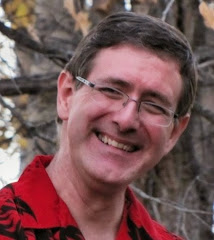Seriously? He loves 500 Athabascans he has never met
before? Riiight! That statement was enough to make a few people’s eyes roll,
and those who didn’t may have been thinking, “Easy for you to say, but I could
never do that. That’s too hard.” Or, “I tried that once, but I got hurt,” or
“let me tell you about my bosom friend who betrayed me. That taught me a huge lesson about loving
people.”
But somehow
he had us all in the palm of his hand.
You could have heard a pin drop when he was talking that night about how
he had found his purpose in life, that he learned that one person can make a
huge difference in the world. He learned
that he was addicted to helping people get out of their destructive mindsets and
look for the positives as a way of battling poverty, depression and suicide.
He was
living out Jesus’ command to love one another.
I don’t know if he is Christian or not, but he was living out the gospel
in a positive way, sharing his fortune of a Creator-given beautiful voice to
Canadians wherever he went. He was
turning what had been a nightmare life into a dream to inspire and heal others.
Sometimes I
think we get caught in the ruts of our nightmare lives and we need something to
push us out of those ruts. Sometimes we
get stuck in our pity parties, our resentments, our grudges and our fears and
can’t see beyond our noses. Sometimes we
are like a heart patient that needs an electrifying jolt to get our hearts
started up again.
“Clear” someone yells, and the emergency staff
bring down the paddles and our bodies leap up from the stretcher in the intense
energy needed to get our hearts pumping again.
That’s what
Peter’s dream is about, I think. He had
watched Jesus eat with all kinds of people, Samaritans, Syrophonecians, tax
collectors, prostitutes, drunks, lepers, the works. He had seen Jesus heal the servants and
children even of Roman soldiers, the dreaded enemies. And yet Peter was stuck in a dangerous
rut. In fact the whole Jesus movement
was caught up in the concept that their faith was one more interpretation of
Jewish faith. Jesus was Jewish, followed
Jewish laws, quoted Jewish scriptures, followed Jewish traditions, and like all
good Jewish men, went to temple to have arguments around Jewish
interpretations. So were Peter, Paul,
Mary, Martha and all the other disciples.
Good Jewish people.
God didn’t
want them falling into the same old rut.
Hence the dream Peter has, or more precisely the nightmare. I can just picture the horror and disgust
Peter felt at looking at that banquet spread on the sheet. Calamari, chocolate-covered ants, lobster,
wichety grubs, probably still raw rather than deep-fried and coated in bread
crumbs to disguise their appearance.
Just because John the Baptist ate locusts, doesn’t mean that Peter was
looking forward to grasshopper pie!
So Peter
endures what for him must be a shockingly stomach-churning picture of a
heavenly picnic and realizes that this means that he’s going to have to rethink
who or what he hobnobs with and since Christianity has so many mentions of
heavenly banquets and feeding of 500, socializing with those folks, their kind,
was going to take a huge act of, well, guts!
This was a
deep act of selfless love and acceptance, when you come to think of it, and is
actually one of the reasons Christianity spread so far so fast in the early
days. Thomas had to eat Butter Chicken
and curry in India, two romans named Cyril and Methodius had to figure out
holopchi and perehe, goodness knows what they thought of escargots when they
first arrived in France, or even dim sum for that matter.
Somewhere
along the way, though, we lost sight of the love part of that heavenly banquet,
and instead of enjoying pemmican and bannock, we imposed carrots and Brussel sprouts. We forgot that Christianity is sitting down
with our neighbors and eating what they put out in front of us. We forgot to watch the Holy Spirit saying,
“Shut up Peter, you’ve talked enough, let me get to work in these folks before
you mess it up with too many words.”
Imagine what
it would be like if Peter hadn’t listened to his dream. I would probably be a high priestess
performing human sacrifice on the solstice while wearing little more than
mistletoe. We wouldn’t have roads or
democracy unless we lived on the land of the Iroquois Confederacy. There would probably be no public schools,
health care, employment insurance or shelters for battered women. But if we had kept the love of Jesus’ example
firmly at the forefront of our thoughts, we would have never implemented
Residential Schools, we would not use violence as a core tool for disciplining
children or spouses, and our environment would probably be a lot
healthier. Peter was shown that God made
all the creatures of the world and they were not to be considered unclean. Would we be in such a position as we are
today if we saw polar bears as God’s precious creation? When we have pictures of turtles who got
caught in pop bottle holders and grew around them with a figure eight waist
before it killed them, would we see them as God’s precious creation?
Jesus wanted
his followers to set love as the core of how they chose to interact with each
other and those that they would meet in the future. He wanted compassion as the core value to
drive all our choices. He wanted love to
be the compass that we use to guide all our interactions. Love, not an emotion, but an action. In the end, it’s not the what’s that are
important, the what I do, the what I drive, the what I own, the what I have in
the bank account. It’s the why’s and
how’s. Why I support the Food for
Thought, the M&S fund, the prayer shawl ministry, the PRAAC organisation,
the AA folks, the people struggling with inadequate housing or poor parenting
or suicide or depression. Why? Because
we are creatures of love, made by the Great Love at the center of the
universe. And when we remember that why,
our how’s become simple and straightforward, we do it in love. To everyone, Jew and Greek, Status and
immigrant and refugee, gay and straight and alphabet people, rich and poor
alike. By this everyone will know that
you are my disciples, if you have love for one another. They will know we are Christians, after all,
if our why and how are about love.

